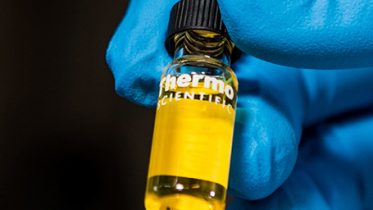Protecting cannabis varieties and plants in Mexico
- 02 December 2021
- New legislation
Written by: Eder Gutiérrez
The cannabis regulatory framework in Mexico is changing. In 2017, medical uses were legalized. In 2018, the Supreme Court ordered the Congress to regulate recreational purposes. In mid-2021, the rules prohibiting recreational marihuana were declared unconstitutional. Currently, cannabis-related laws and regulations are being discussed in the Congress and within the Ministry of Health. In can thus be seen that the plant is extending its roots in the fertile grounds of the Mexican market, and, if the trend continues, sooner than later there will be legal cannabis plants (literally) rooting in Mexican soil, with increasingly diverse products obtained therefrom becoming accessible to consumers.
Against this backdrop, securing intellectual property rights for cannabis plants and technologies, through plant variety rights (PVRs) and patents, may become critical for companies interested in the promising Mexican market.
Breeder’s rights
PVRs are available through breeder’s rights certificates. The Federal Law of Plant Varieties is aligned with the UPOV Act of 1978 and offers exclusivity rights for producing, reproducing, distributing, and selling a plant variety and its propagating material, as well as producing further plant varieties or hybrids with commercial purposes. For a plant of the Cannabis species, the term of protection is typically of fifteen years from the issuance of the certificate.
Distinctness, Uniformity and Stability (DUS) must be established for the certificate to be issued. Importantly, the local Plant Variety Office, the National Service for Seed Inspection and Certification, may accept DUS tests carried out abroad and validated by a foreign Plant Variety Office.
Due to recently acquired international obligations, Mexico is in the process of updating its legislation to the UPOV Act of 1991, thereby providing increased PVR protection. This updating process is expected to finalize by late 2022.
It may be surprising for many to learn that no cannabis plant varieties have been protected in Mexico. The very first three cannabis PVR applications were filed in 2020 and are being examined by the local authority. Such numbers may be explained by the historical prohibition severely limiting both local innovation and foreign interest in the country. However, such prohibition is now coming to an end, so the number of PVR applications and certificates is only expected to increase.
Patents
Mexico is one of the few Latin American countries that offer patent protection for plants. As such, many plant applications have been processed and granted by the Mexican Patent Office.
There are two restrictions concerning plant-related inventions that should be considered.
First, plant varieties cannot be patented, so they must be protected through PVRs. However, based on current examination criteria, if the technical feasibility of the invention is not confined to a particular plant variety, the plant may be patented.
Second, essentially biological processes for producing plants and the plants resulting therefrom are excluded from patentability. This exclusion has been interpreted by the Mexican Patent Office as being directed to “conventional” breeding methods that are based on crossing, backcrossing, and selection of plants with improved traits, even if modern technologies such as molecular markers are used to assist in the process. On the other hand, genetically modified plants have been consistently deemed patentable.
It goes without saying that patents are available for cannabis-related products and technologies, such as pharmaceutical and cosmetic compositions, medical uses, crop technologies, and extraction/purification processes and its products.
Even though important regulatory obstacles remain, the future of the cannabis industry in Mexico looks promising. Therefore, cannabis growers and businesses are advised to include Mexico in their intellectual property strategies. At the end of the day, this country might well become of the biggest legal cannabis producers supplying national and international markets.









